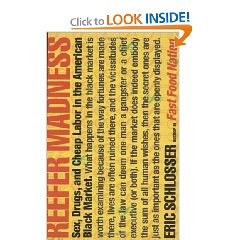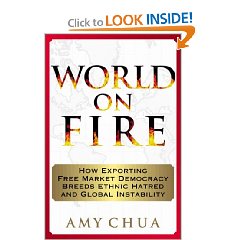The recent black-out that plunged Canadian provinces and many US states, notably New York, into darkness, while producing disturbing pictures of millions exiting New York on foot across its automotive bridges, can be understood by reading several books, among them this book. Others include Charle's Perrow's “Normal Accidents: Dealing with High Risk Technologies”, Norman Cousins, “The Pathology of Power”, and the variety of books that focus specifically on corruption and deception by electrical utility companies around the world, but generally in the US, UK, and Australia.
Summing the book up in one sentence: the industrial system disconnected the ethics of kinship and community from the production process. It allowed “objective” industrial management to devise complex processes in which each individual plays a functionalist role with minimalist information, and no one person can see the relationship between their “objective” task, and the massively dysfunctional, pathological, and corrupt outcomes of the total industrial system.
This is an erudite, well-documented, well-reasoned book. It carefully addresses the manner in which sociopathological organizations–including militaries and the corporations that create them in their image–undermine national security and the national commonwealth. It concludes on a positive note: restoring group governance, and restoring the connection between kinship, community, ethics, and the manner in which national security and national economic decisions are made, can reverse this destructive evil trend, and restore mankind to a state of grace among men and between men and nature. This is an inspiring important work.
More recent books bearing out this author's original message:
The Battle for the Soul of Capitalism: How the Financial System Underminded Social Ideals, Damaged Trust in the Markets, Robbed Investors of Trillions – and What to Do About It
The Soul of Capitalism: Opening Paths to a Moral Economy
The Global Class War: How America's Bipartisan Elite Lost Our Future – and What It Will Take to Win It Back
Exporting America: Why Corporate Greed Is Shipping American Jobs Overseas
War on the Middle Class: How the Government, Big Business, and Special Interest Groups Are Waging War onthe American Dream and How to Fight Back
Vice: Dick Cheney and the Hijacking of the American Presidency
Running on Empty: How the Democratic and Republican Parties Are Bankrupting Our Future and What Americans Can Do About It
State of Emergency: The Third World Invasion and Conquest of America
Day of Reckoning: How Hubris, Ideology, and Greed Are Tearing America Apart











